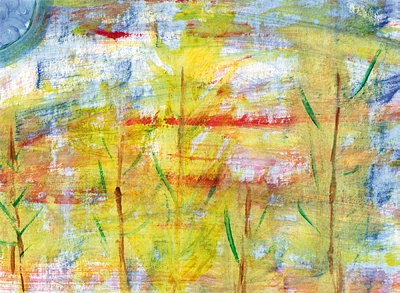All Nonfiction
- Bullying
- Books
- Academic
- Author Interviews
- Celebrity interviews
- College Articles
- College Essays
- Educator of the Year
- Heroes
- Interviews
- Memoir
- Personal Experience
- Sports
- Travel & Culture
All Opinions
- Bullying
- Current Events / Politics
- Discrimination
- Drugs / Alcohol / Smoking
- Entertainment / Celebrities
- Environment
- Love / Relationships
- Movies / Music / TV
- Pop Culture / Trends
- School / College
- Social Issues / Civics
- Spirituality / Religion
- Sports / Hobbies
All Hot Topics
- Bullying
- Community Service
- Environment
- Health
- Letters to the Editor
- Pride & Prejudice
- What Matters
- Back
Summer Guide
- Program Links
- Program Reviews
- Back
College Guide
- College Links
- College Reviews
- College Essays
- College Articles
- Back
Cultural Identity
Cultural identity is not something that can be taught. Each person’s cultural identity is a direct result of their experiences, not a lesson to be learned. This concept is one I came to realize not through a synthesis of my ideas into a concrete definition, but through hard experiences and self examination. I am not part of any traditional culture and do not claim to have any portion of my cultural identity derived from those people’s culture to which I have a genetic link. The fast changing modern culture of American youth, or millennial culture, is the only one I feel comfortable calling solely my own.
My mother was born with a strong connection to her Irish culture. Citizenship, and years of living in the country of her heritage endowed my mother with a violent love of Ireland and who she was as an Irish-woman. Throughout my childhood, she tried to give me her culture. She exposed me to Irish music, taught me that to be Irish was to be Catholic, and forced me to watch graphic movies about the island’s history, all in an effort to make me Irish, but I was confused. I lived in America, and I did not like the blaring noise that was her “celtic music”. I was scared by the violence and anger I saw in the movies and documentaries. Even in my early youth, I was comfortable with the terrible pop songs and cheesy movies that permeate American millennial culture much more than “my” Irish culture.
I remember one pivotal event in my journey to accepting my culture happened when I was in first grade and my sister was in third. We were going to school for the first time in our lives after a long period of homeschooling. In the middle of the year, the school put on a talent show and this made my mother so excited. She decided to showcase my sister as her little Irish dancer. I was too little so I just watched as they practiced for hours, my mother laboring to teach her the proper kicks and turns. She won the talent show, but not for her Irish dance. On stage, the moves fled her, so she faked it. My sister hopped around the stage in whatever pseudo-dance she could conjure and it worked. No one in the audience realized what had happened, but I did. I had realized that there is a very big difference between being a part of a culture and acting a part of it.
I still tried so hard to be the little Irish girl my mother yearned for, but as I grew, my disillusionment seemed more certain. In middle school, I gained a wide knowledge of pop culture and found that there was no harm in liking what is popular. After that, social media became a normal thing for me and I actually enjoyed it, though with this cultural branching came emotional distress. I felt ashamed that I was not part of a “real” culture and guilty for my waning love of what my mother was offering me. Slowly I was distancing myself from what my mother wanted me to be and who I was going to be. Finally I began rejecting pieces of what my mother felt it was to be Irish. I abandoned Catholicism and religion altogether and refused to listen to any music or watch any movies she wanted to force on me. When my mother left on a trip to Ireland, I felt no longing, for my supposed homeland or for her. In the years between then and now I have progressively come to love being a millennial and now know that no culture is superior to another.
Throughout my childhood, I felt a pressure from my mother to conform, to be exactly what she wanted, to be Irish. When I came to be a part of the rapidly evolving culture of American youth, I embraced it and left behind a fake Irish existence. Sharing on Tumblr, Instagram, and Facebook, though some may deem the activities shallow and idle, are a part of millennial culture and how those who identify with it stay connected. Interactions with people around the world via these sites facilitates the creation of new media that feeds the culture. Common love or hatred of certain media, be it art, music, or a TV show, unites millennials around the globe, myself included. This culture is criticized a lot for being ‘lazy’, ‘hooked on their phones’, and feeling ‘entitled’, but I have found it to be extremely accepting. I was able to explore new aspects of myself that I never knew were a possibility and embrace them without judgement. The divergence between my mother and I eventually allowed me to be at peace with who I am and what I am a part of. Although my millennial culture is non traditional in definition, it is a part of an identity that I fought to realize and one I would never give up.

Similar Articles
JOIN THE DISCUSSION
This article has 0 comments.
